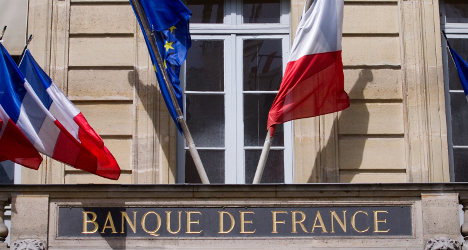France's stated plan to cut spending and taxes to trim €18 billion ($24 billion) from the deficit this year and €50 billion from 2015 to 2017 is "broadly positive" for competitiveness, Moody's said in a statement.
But the ambition of the plan, the fact most of the expenditure cuts are unspecified, the political unpopularity of reduced healthcare spending, and weak growth all underline the "significant implementation risk," it said.
That goes to supporting Moody's negative outlook for France's sovereign rating, which it currently puts at Aa1, it added.
Moody’s was however sceptical about the government’s ability to implement these reforms, saying the task would be even “more difficult in a context of sluggish growth”.
“If the new guidelines adopted by the French government seem generally favourable to the overall competitiveness of the country, the risk associated with the implementation of the program is significant,” Moody’s said, citing “political tensions".
Moody's has downgraded its own forecasts for the French economy. It now expects growth of 0.6% this year and 1.3% in 2015, compared to previous predictions of 1.0% and 1.5% respectively.
There are also doubts at a European level whether France can stick to its targets of cutting its deficit.
The European Union in June last year agreed to give France an extra two years, until 2015, to bring its deficit under the EU-agreed ceiling of 3.0 percent of economic output.
But strong doubts remain over whether the French government will be able to make good on its promise, as it struggles to balance its left-wing agenda and meet its commitments to the European Union.
Earlier this year Finance Minister Michel Sapin was forced to deny that that Paris were hoping to persuade the EU to give them more time.
"I have always said that I have not asked for a delay," Michel Sapin told AFP in a telephone interview, as the government spokesman said that deficit control was a condition for growth.
Britain, which also has an Aa1 rating and similar debt and deficit figures, has a stable outlook because of "a stronger track record of fiscal consolidation" after more than three years of spending cuts, Moody's noted.



 Please whitelist us to continue reading.
Please whitelist us to continue reading.
Member comments